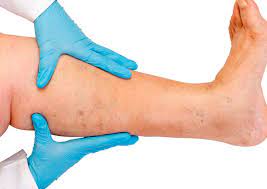If a person has a member of the family who has the condition or if they want to avoid it, they must know about it. Your physician is informed that you have vascular disease or elevated blood pressure. If you are suffering from hypertension, a vascular issue, or soreness in your legs while walking, you must seek vascular disease treatment in Houston.
What is Vascular Disease?
Vascular disease is a condition in which the blood vessels that carry blood to and from your heart become damaged. This can happen because of a variety of factors, including high blood pressure, smoking, and obesity. Vascular disease can lead to a number of complications, including heart attack, stroke, and leg amputation. There are many types of vascular disease, but the most common is atherosclerosis. This is a build-up of plaque on the walls of the arteries. The plaque can cause blockages, which can lead to heart attack or stroke. It can also cause problems with the veins and capillaries, which carry blood throughout the body. If left untreated, vascular disease can lead to death.
These blood vessels are responsible for supplying blood to different parts of the body. When vascular disease occurs, the blood flow to certain parts of the body can be restricted or even stopped altogether. This can cause a variety of symptoms, ranging from mild issues such as exhaustion or shortness of breath to more serious illnesses such as a stroke or coronary artery disease. Vascular disease is a primary cause of death in the United States, and it is critical to understand the dangers so that you can take precautions.
Symptoms of Vascular Disease
The vascular disorder is severe in which blood arteries become restricted or obstructed. This can cause issues with blood circulation to numerous sections of the body, along with the nervous system. The major reason for vascular disease is atherosclerosis. This is an issue that changes the inner surface of the capillaries, leading them to shrink or obstruct. Other factors of vascular disease include obesity, tobacco, and glucose.
If you’re noticing any of the following symptoms, it may be time to see your doctor: Numbness or tingling in your feet or handspan when you stand up quick shortness of breath chest pain when you take a deep Breathitt’s important to get checked out if you’re feeling any of these symptoms because they could mean that you have vascular disease. Vascular disease is a problem with the blood vessels and can cause problems with your heart, brain, and other organs. If left untreated, vascular disease can lead to death. So it’s important to get help as soon as possible.
How Can Vascular Problems Be Avoided?
Vascular disorders can be prevented by taking certain precautions. Some of the key risk factors for vascular disorders include being overweight, having high blood pressure, smoking, and being poorly educated. By taking these simple steps, you can significantly reduce your risk of developing a vascular disorder. The most important thing is to keep your blood pressure under control. You can do this by eating a balanced diet, exercising regularly, and getting enough sleep. You also need to avoid smoking and drinking too much alcohol. If you have a family history of vascular disorders, you should talk to your doctor about how to prevent them.
Prevention is the best way to control vascular disorders. There are many things that you can do to reduce your risk of developing a vascular disorder. Some of the most important things that you can do are to eat a healthy diet, exercise regularly, and avoid smoking. Being aware of your risk factors is also important. If you have a family history of vascular disorders, then it is important to get checked for them. If you are at high risk of developing a vascular disorder, then you should take steps to reduce your risk. If you have such issues, it is critical that you receive therapy as soon as possible to avoid your illness from deteriorating and becoming more severe. If you probably noticed persistent leg soreness or poor circulation, consult with the best vascular specialist.












